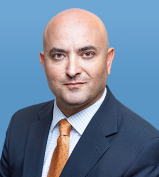Artificial Intelligence and Autonomy in Russia

Speaker(s): Bendett, S. (CNA & Center for a New American Security [CNAS])
Date: 17 August 2021
Speaker Session Summary
SMA hosted a speaker session with Mr. Samuel Bendett (Advisor, Russia Studies Program, CNA & Adjunct Senior Fellow, Center for a New American Security [CNAS]) as part of its SMA EUCOM Speaker Series.
Mr. Bendett discussed how Russia’s development of artificial intelligence (AI) and autonomous weapons systems manifest in its civilian and military sectors. To boost innovation in its civilian sector, Russia’s government has funded new venture companies in an attempt to mirror the research and development (R&D) communities in Western countries. By making investments on a regional level, Russia is hoping that its STEM community pursues R&D careers in Russia. This will help slow the ‘brain drain’ from Russia to Western countries. Russia believes that by increasing its private sector’s ability to conduct scientific R&D is the best way to close the gap between itself and the leaders in AI, such as the US and China.
Russia’s military operations are fully state funded and categorized into four topics which are: a) information management and decision making; b) autonomy; c) training, logistics, maintenance, and procurement; and d) early warning and air defense. Russia views autonomous attack robotics systems that can communicate with human controllers as the future of its autonomous weapons systems. Russia has already been testing the effectiveness of its autonomous weaponry on battle fields, like Syria, with mixed results. The current problems and hurdles facing Russian development in AI and autonomous weaponry are: a) overcoming tech issues and deficiencies, b) governmental and state leadership trying to adopt historically private-sector operational and growth principles, and c) ethics and human user issues. Mr. Bendett emphasized that in the near term AI will primarily be used as a decision making tool for commanders.
Note: We are aware that many government IT providers have blocked access to YouTube from government machines during the pandemic in response to bandwidth limitations. We recommend viewing the recording on YouTube from a non-government computer or listening to the audio file (below), if you are in this position.
Samuel Bendett

Advisor, Russia Studies Program, at the CNA SP3.
Member, CNA Center for Autonomy and AI.
Bio: https://www.cna.org/CAAI/Bendett_S
Samuel Bendett is an Adviser with CNA Strategy, Policy, Plans and Programs Center (SP3), where he is a member of the Russia Studies Program. He is also an Adjunct Senior Fellow at the Center for a New American Security. His work involves research on the Russian defense and technology developments, unmanned and autonomous military systems andArtificial Intelligence, as well as Russian military capabilities and decision-making during crises. He is a Member of CNA’s Center forAutonomy and Artificial Intelligence, and an honorary “Mad Scientist” with the USARMY TRADOC’s Mad Scientist Initiative. Heis also a Russian military autonomy and AI SME for the DOD’s Defense Systems Information Analysis Center.
Prior to joining CNA, Mr. Bendett worked at the National Defense University on emerging and disruptive technologies for the Department of Defense response in domestic and international crisis situations. His previous experience includes working for US Congress, private sector and non-profit organizations on foreign policy, international conflict resolution, defense and security issues.
Mr. Bendett’s analyses, views and commentary on Russian military robotics, unmanned systems and Artificial Intelligence capabilitiesappear in the Forbes, C4ISRnet, Defense One, War on the Rocks, Breaking Defense, The National Interest and The Strategy Bridge. Between 2008 and 2016, he was a foreign policy and international affairs contributor to the RealClearWorld.com blog.
Samuel Bendett received his M.A. in Law and Diplomacy from the Fletcher School, Tufts University and B.A. in Politics and English from Brandeis University. He has native fluency in Russian.
